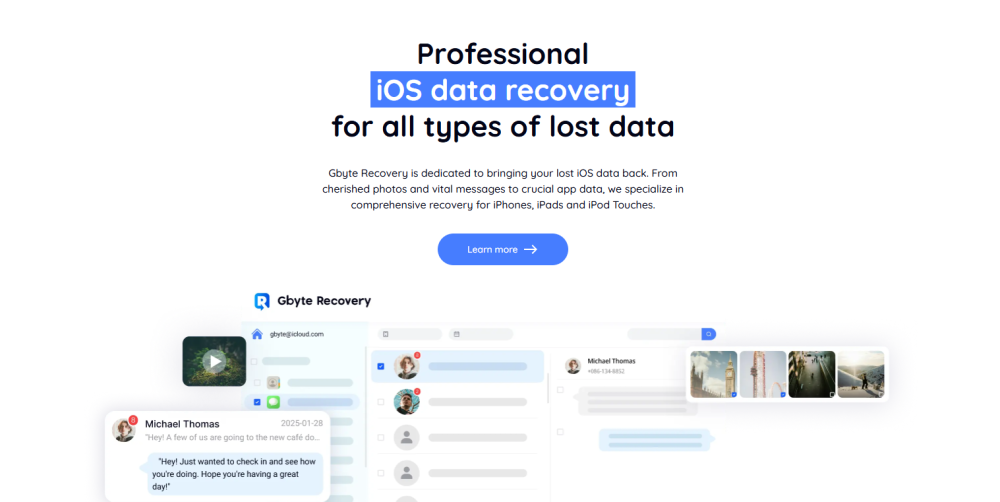It’s Tuesday morning, and the principal calls. A student has shown troubling behavior—withdrawn in class, a sudden drop in grades, rumors of family struggles at home. The school social worker jumps into action, but here’s the problem: the student’s history is scattered across multiple systems. Counseling notes are on a local drive. Attendance records live in the school database. Health information? That’s in the nurse’s office. And family outreach logs? Those sit in a file cabinet.
By the time the social worker pieces together the puzzle, precious hours are lost. And in school social work, hours matter.
This is why centralized data management isn’t just convenient—it’s the backbone of effective school social work software. Without it, information slips through cracks. With it, schools move faster, coordinate better, and give students the holistic support they deserve.
Let’s break down why centralization matters, and what it brings to modern school-based social work.
One Student, One Record
In too many schools, a single student ends up with a dozen “records.” Each one lives in a different system, owned by a different department, maintained by a different person. Teachers have gradebooks. Counselors keep private notes. Social workers jot observations in binders.
It’s fragmented, and fragmentation breeds blind spots.
Centralized data management solves this by creating a single, living student profile that brings everything together:
- Attendance patterns.
- Academic performance.
- Social-emotional assessments.
- Counseling notes and intervention history.
- Family engagement logs.
With one record, the story is whole. And when the story is whole, interventions are better informed, faster, and more effective.
Collaboration Without Barriers
School social work is never a solo act. Teachers notice changes in classroom behavior. Administrators track absences. Counselors and social workers provide direct support. Sometimes, outside agencies—health providers, housing services—step in.
But collaboration fails when data lives in silos. Each stakeholder sees only their slice, and no one has the full picture.
Centralized school social work software breaks down those walls. With role-based access, staff can share relevant information securely, without oversharing sensitive details. Teachers can flag concerns. Social workers can log interventions. Administrators can track outcomes. And everyone stays aligned around the same truth.
The result isn’t just efficiency. It’s dignity for the student, who doesn’t have to retell their story a dozen times to a dozen different people.
Real-Time Updates = Faster Response
In a school setting, time is everything. A student in crisis doesn’t need help “next week.” They need it now.
Centralized systems enable real-time updates. A teacher logs a concern. Within minutes, the social worker sees it. That triggers outreach, which gets logged into the same system, visible to the right staff.
No chasing emails. No “I didn’t see that note.” No duplication of effort. Just fast, coordinated action when it matters most.
Data That Powers Better Decisions
Here’s the truth: schools are drowning in data. The challenge isn’t collecting it—it’s making sense of it.
Centralized platforms transform raw data into insights. Dashboards show:
- Which students are at risk of chronic absenteeism.
- Trends in counseling referrals over time.
- Outcomes from specific intervention programs.
- Disparities across grade levels or demographics.
Instead of asking, “How are our students doing?” schools can point to evidence. And evidence drives smarter resource allocation, stronger funding proposals, and more impactful programming.
Security That Builds Trust
Student data is sensitive—arguably some of the most sensitive information schools hold. Families won’t engage if they don’t trust the system.
That’s why security is non-negotiable in effective school social work software. Centralized data management brings consistency to how information is protected:
- Encryption keeps data safe in storage and transit.
- Role-based access ensures only the right people see the right details.
- Automated audit trails track every entry and update.
This isn’t just about compliance with FERPA or HIPAA. It’s about building the trust that makes true collaboration possible.
Mobility: Social Work That Moves With You
School social workers aren’t chained to their desks. They’re in classrooms, hallways, meetings with families, sometimes even making home visits.
Centralized, cloud-based systems allow them to:
- Access student profiles from a tablet or phone.
- Log notes in real time—even offline, with secure syncing later.
- Stay connected to the system without lugging paper folders around.
When the software moves with the social worker, support moves faster too.
Compliance Without the Headache
Ask any school social worker what keeps them up at night, and compliance will be near the top of the list. State reporting requirements. District policies. Privacy mandates. The paperwork burden is enormous.
Centralized systems streamline compliance by:
- Auto-generating required reports from existing data.
- Flagging missing or incomplete documentation.
- Standardizing recordkeeping across staff and schools.
Instead of compliance being an afterthought (or a mad scramble), it becomes part of the daily workflow. Quiet. Efficient. Always ready.
From Data Collection to Impact Measurement
Here’s the real win: centralized data doesn’t just capture what’s happening. It shows whether interventions are working.
With effective school social work software, districts can measure:
- Reductions in behavioral incidents after new programs.
- Improvements in attendance following interventions.
- Long-term academic performance for supported students.
- Engagement levels of families and caregivers.
Impact is no longer anecdotal. It’s documented, measurable, and repeatable. And that empowers schools to refine their strategies and share success stories with confidence.
Advocacy Backed by Evidence
School social workers are often advocates—not just for individual students, but for broader support services within districts. And advocacy requires proof.
Centralized data equips social workers with the evidence they need to push for resources:
- More counseling staff.
- Expanded after-school programs.
- Stronger partnerships with community providers.
Instead of “We think we need this,” the conversation becomes, “Here’s the data showing why this is essential.” That shift changes everything.
Final Word: Centralization as the Foundation of Care
At the heart of school social work is a simple mission: make sure students are supported, safe, and able to thrive. But that mission falters when information is scattered, delayed, or incomplete.
Centralized data management gives schools the clarity, speed, and confidence to act quickly and effectively. It supports collaboration, strengthens compliance, safeguards trust, and measures real impact.
The best school social work software doesn’t just store information—it connects the dots, turning scattered pieces into a clear picture of each student’s needs and progress.
Because every student’s story deserves to be complete—and every intervention deserves the data backbone to make it count.




